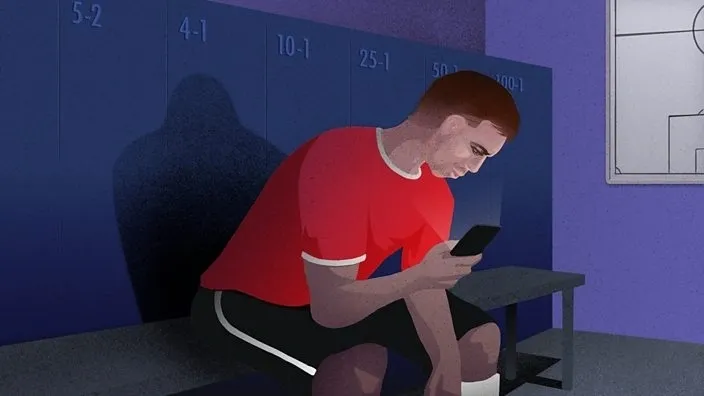We often talk about the harm the gambling industry inflicts upon ‘ordinary’ football fans, and rightly so, but what about the industry’s impact on professional footballers?
Words by Tom Fleming
Countless fans are harmed by constant exposure to gambling adverts and marketing, so surely players are too?
Over the past few years, there have been several high-profile cases involving breaches of the Football Association’s (FA) betting guidelines, including Joey Barton, Daniel Sturridge, and Kieran Trippier.
A recent report, Evening the Odds, provides an in-depth analysis of all the breaches of the FA’s betting guidelines listed on their website. Based on all available data since the 2014/15 season, the report found that:
- There were 101 betting offences listed on the FA website (at the time of writing, in March 2021)
- Apart from the 2018/19 season, cases have risen dramatically year on year
The report highlighted that gambling addiction was a concerning factor in many of the cases:
“Worryingly, 26% of Regulatory Commissions cited addiction or “problem gambling” as a mitigating factor when considering sanction. More worrying still, this number does not include cases in which gambling addiction was raised as an issue but, ultimately, did not contribute to the mitigating factors in the case. It is therefore likely that addiction is a factor in around a third of cases.”
The increasingly intertwined relationship between football and gambling cannot be overlooked as a factor in these offences. Gambling culture is reportedly rife in professional football, and it seems this harmful environment is facilitating addiction amongst both fans and players. Given that it affects many supporters, it would be naïve to think that the incessant promotion of gambling doesn’t affect the players. The report cites football’s gambling culture as a serious source of wider concern:
“The high number of cases in which addiction is a feature will also contribute to ongoing conversations surrounding the uneasy relationship between football and gambling. Indeed, a number of the cases referred to a perception that gambling is very much part of the culture of the game. If that culture is leading to addiction problems for Participants who are specifically prohibited from betting, it is possible that the effect of football’s “gambling culture” in the wider population may be even more severe.”
It is clear from the report’s findings that gambling addiction can affect anyone, including professional footballers. Aside from comprising the integrity of the sport, the report highlights the growing danger of gambling addiction, and the need for change in how gambling addiction is perceived, concluding:
“This raises the question: should Commissions be more consistent in their treatment of gambling addiction as a mitigating factor? As the expert testimony in Barton made clear, addiction impairs a Participant’s ability to make informed choices. Whilst the degree to which an individual’s decision-making is affected will be a question of fact which will vary in each case, the discretion accorded to Regulatory Commissions is sufficiently broad to allow them to take this into account, and addiction should be treated as a mitigating factor in all but the rarest of cases.”


